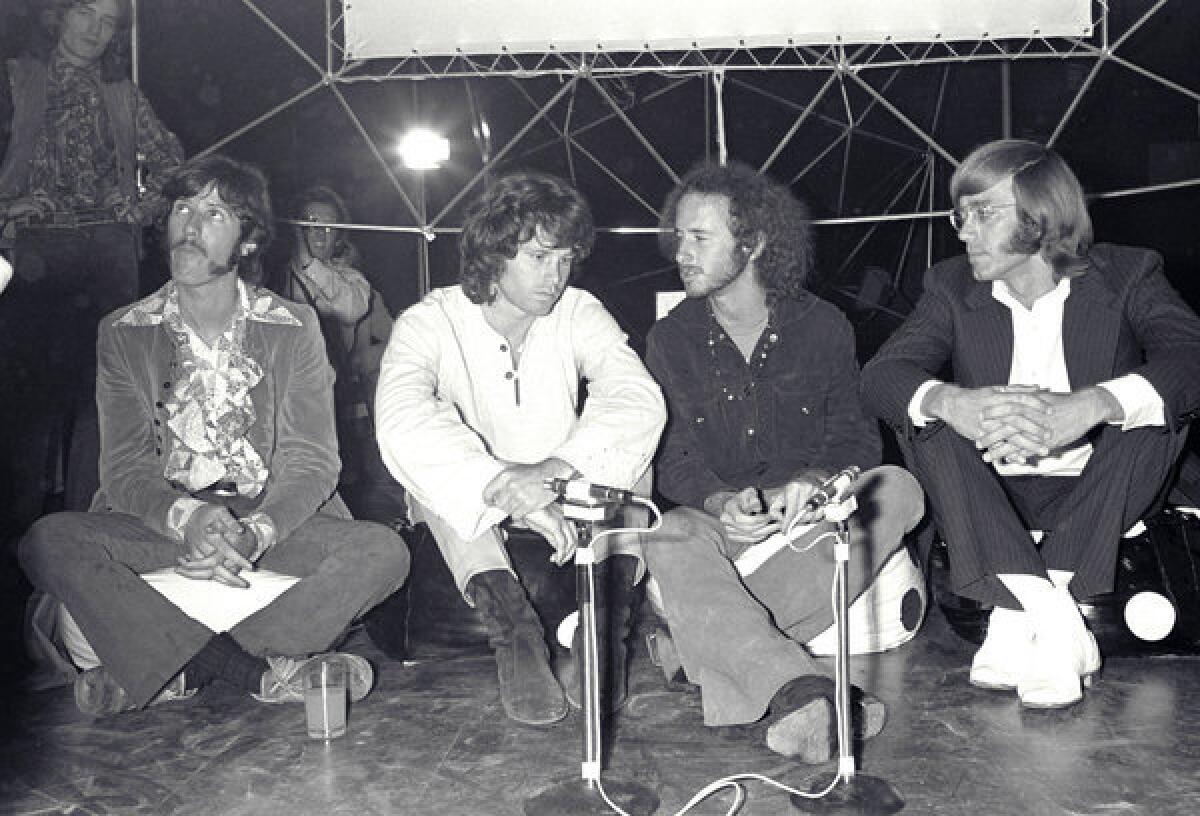Ray Manzarek remembered the Doors in his books

- Share via
When Doors keyboardist Ray Manzarek died Monday, he left behind a musical legacy that included 15 singles that made Billboard’s hot 100 list, including the songs “Light My Fire,” “Waiting for the Sun,” “Touch Me,” “Riders on the Storm,” and “People Are Strange.” Less well known is his literary legacy, which included a memoir and two novels.
The memoir was “Light My Fire: My Life With the Doors.” Manzarek was uniquely positioned to tell the story of the Doors, having begun the band with Jim Morrison after they met in Venice, Calif., in 1965. In his 1998 memoir, Manzarek tells the insider’s tale of the band, which had its first big hits in 1967 and became one of the most significant rock bands of the era -- that is, until Morrison died in Paris in 1971.
Or did he? That was the theme of Manzarek’s novel “The Poet in Exile,” published by Thunder’s Mouth Press. It tells the story of a rock star, J, whose death in Paris may not have been what it seemed. “Was it all a hoax?” Manzarek wrote in the novel. “Was it all an elaborate ruse to free the Poet from his worldly entanglements, including his now increasingly heroin-intoxicated mistress, and send him off to ports unknown where he could pursue his craft unencumbered?”
In our 2002 review, Jonathan Kirsch explains, “‘The Poet in Exile,’ of course, is presented as a work of fiction. The Poet, whom we are supposed to recognize as Morrison, is dubbed Jordan, and Manzarek’s alter ego is called Roy. Morrison styled himself as the “Lizard King,” and Manzarek calls Jordan the “Snake Man.” But the author writes with a wink and nod, and he clearly hopes to enlist his readers in yet another twist on the myth that Morrison cultivated during his own lifetime.” And -- spoiler -- Roy finds J, and is able to ask him all the questions he’s been wondering about in the intervening years.
While Doors fans will find “The Poet in Exile” and “Light My Fire” to be most illuminating, Manzarek also wrote another, unrelated novel, published in 2006. “Snake Moon” is described as a Civil War ghost story.
And, of course, the band’s name itself is literary, twice over. It’s an allusion to the book “The Doors of Perception” by Aldous Huxley, who himself was referencing work of the poet William Blake.
ALSO:
Bill Clinton visits Colombia, Gabriel Garcia Marquez
J.K. Rowling, other authors reveal secrets in books for PEN auction
Carolyn Kellogg: Join me on Twitter, Facebook and Google+
More to Read
Sign up for our Book Club newsletter
Get the latest news, events and more from the Los Angeles Times Book Club, and help us get L.A. reading and talking.
You may occasionally receive promotional content from the Los Angeles Times.








